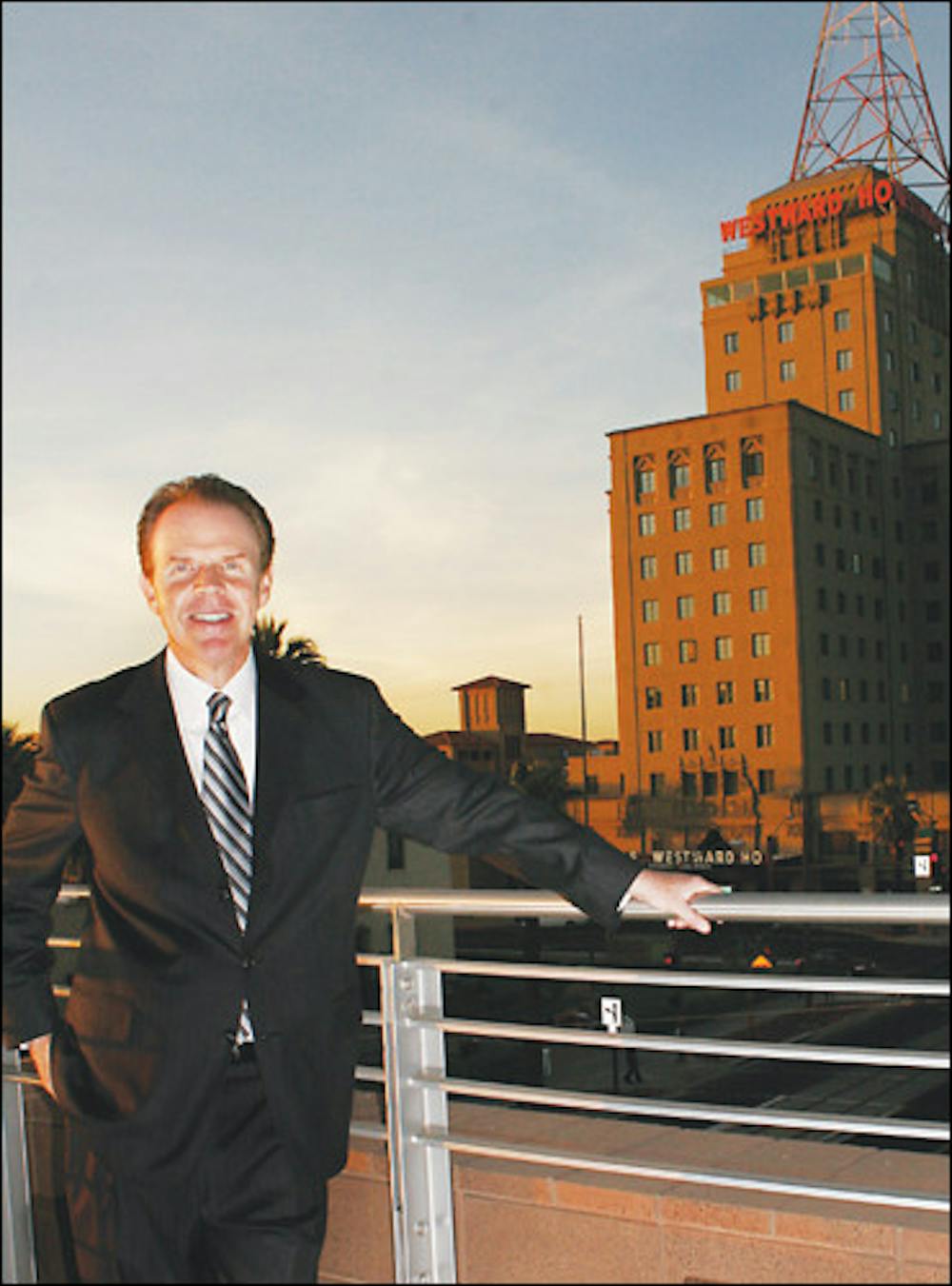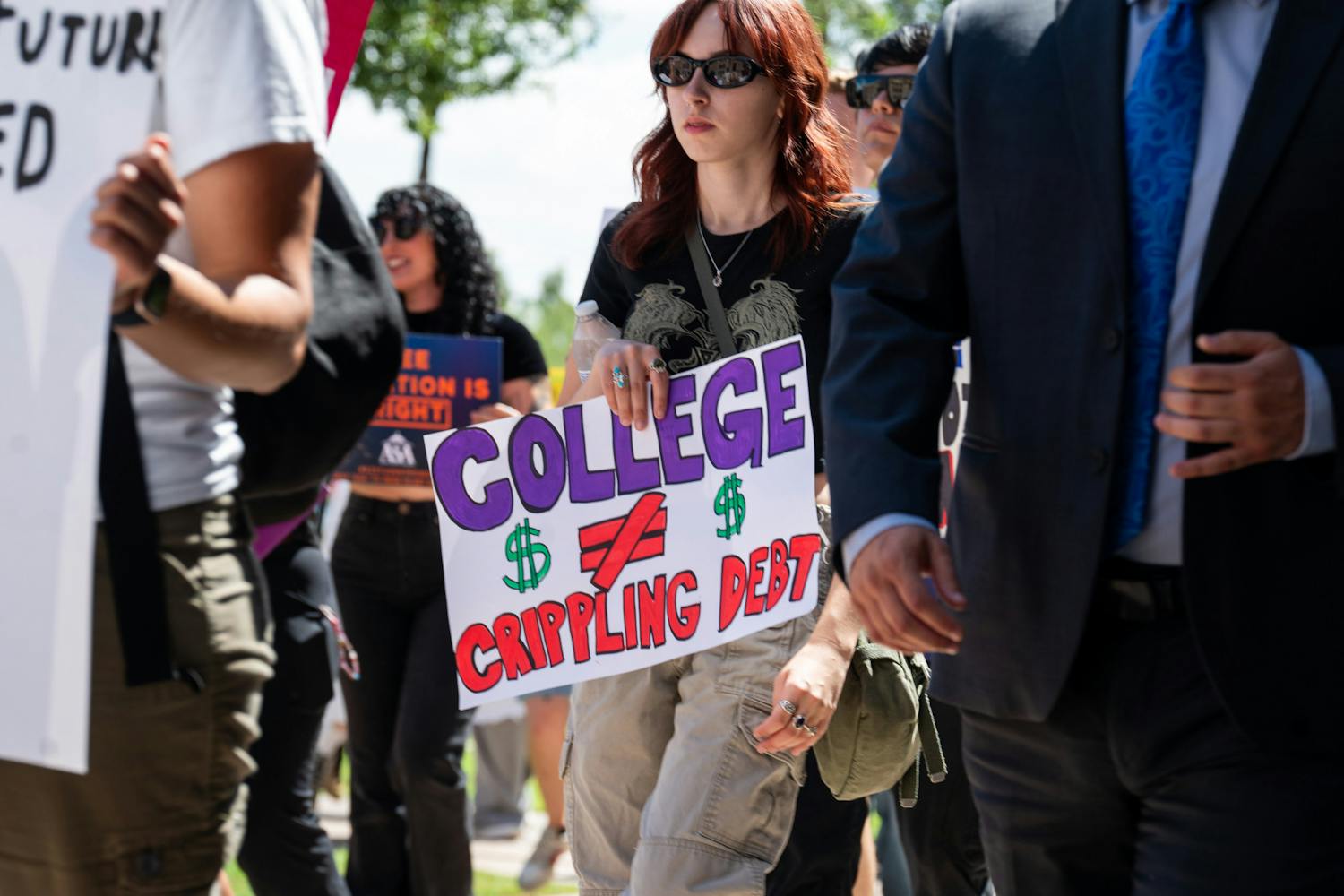Standing in the Donald W. Reynolds National Center for Business Journalism, it may be hard to recall the current struggles in the worlds of both business and journalism.
Founding Director Andrew Leckey is looking beyond current hardships to a bright future in business journalism education with the Walter Cronkite School of Journalism and Mass Communication.
The Donald W. Reynolds Foundation announced Thursday that it would award the center, located in the Cronkite building at the Downtown Phoenix campus, two grants totaling $5,336,360. The money will go to create a Donald W. Reynolds Endowed Chair in Business Journalism, which Leckey will hold, and to begin business journalism classes at the Cronkite School.
Leckey, a former Chicago Tribune columnist and CNBC anchor, said the center would start undergraduate and graduate specializations in business journalism next fall. He said the center chose ASU because Phoenix is a great place for business, and the University has strong schools of business and journalism.
“ASU students are really going to be receptive to business journalism,” he said.
Leckey said ASU students understand why certain products or services, like Apple computers, become popular because they interact with them on a daily basis. A high population of students paying their own tuition means more people are financially aware, he said.
“It’s just a good base of students,” he said. “If we train them in business, they’ll really be ready to take those positions in business journalism.”
The Reynolds Center’s goal is to provide hard-nosed business journalists for publications like the Phoenix Business Journal, Bloomberg and MarketWatch, Leckey said.
Fred W. Smith, chairman of the Las Vegas-based Reynolds Foundation, said in a press release that the Reynolds Center hopes to lead the effort to improve business journalism throughout the country.
He said the foundation is committed to funding the effort because the current financial crisis indicates a need for journalists to understand economic issues.
“This increased flow of high-quality journalism on business topics will, we believe, be an important factor in helping citizens and public institutions make informed decisions about the tough economic challenges that confront us,” Smith said.
Leckey said no matter how complex the problems are, any student who focuses on reporting the issues can thrive in reporting business matters.
“I think there are a lot more jobs in business journalism than in journalism in general,” he said.
But he said the most exciting part for students entering the field will be the significant changes on the way.
“In today’s world, you can’t be just a word person. You have to be a numbers person as well,” he said. “The numbers count. They aren’t the whole story, but they count.”
Leckey said that for too long journalists have told stories without paying attention to the significance of numbers involved. He said they often overlook the numbers and miss a bigger story because they didn’t ask.
Leckey is also looking into a business journalism exchange program with China and India. He said he spent last summer in China building relationships with businesspeople, and he hopes to build similar relationships with the press in India.
“Business is a tremendous opportunity in China because it’s apolitical,” he said. “But the press is still evolving.”
By seizing these opportunities, Leckey said ASU students would be one step ahead of anyone entering the profession.
Anita Malik, deputy director of the Reynolds Center, said Leckey has taught her a lot about the nature of business journalism.
“The philosophy is the best thing I’ve learned from him,” she said. “I think the most important thing is he looks outside of just now.”
Malik said this focus on the future is hard to find elsewhere because most people are only tracking the current economic crisis without thinking of what is next.
By moving this thinking into the classroom, Leckey will build a very strong program at ASU, she said.
Leckey said he is working on every opportunity he finds to build the center into a great resource for students.
“That’s now what we’re focusing on — the students,” he said. “That’s the most important thing.”
Reach the reporter at adam.sneed@asu.edu.




